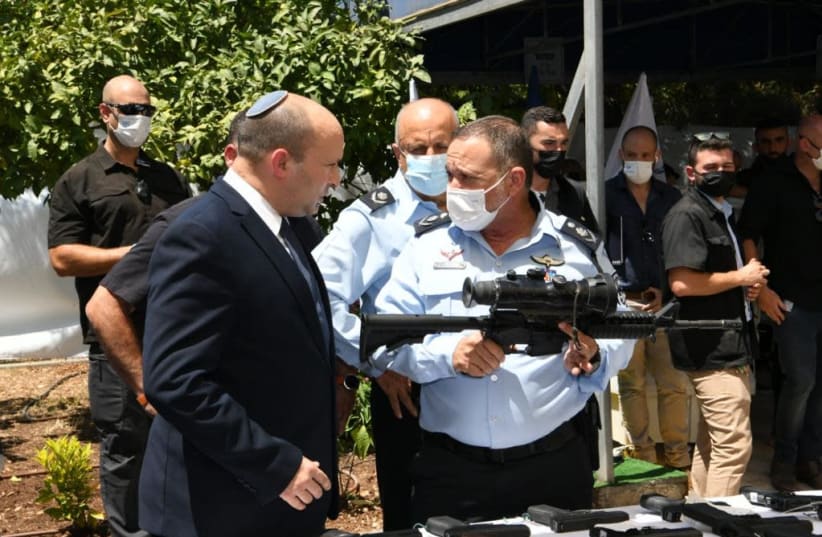It seems that the ongoing scourge of violence in Arab society reached a new level in recent days.
In less than 24 hours over the weekend, three Arabs were murdered in three violent events in different parts of the country.
The first is Ibrahim Nasr Abu Omra, a 30-year-old man from the Negev’s Tel Sheva, who was shot to death close to his home overnight on Friday.
A few hours later, 18-year-old Anas al-Wahwah was shot dead near a local market in Lod.
The third incident involves 26-year-old And Karmatta, a Jaljulya resident who was shot to death in Kafr Kassem late Saturday night.
One might think that this is just internal mafia gangs fighting, but it isn’t.
Al-Wahwah was a student and a Magen David Adom volunteer. His parents said that he was just back from Hungary where he had registered for medical school. He graduated high school with distinction, and received the excellency badge named after Ilan and Assaf Ramon, Ynet reported.
“I never expected that something like this might happen,” his father said Sunday morning. “We don’t have trouble with anyone. The boy went, just like that. They killed him for no reason.”
Speaking with tears in his eyes, he added: “There was no kid like him. It’s a boy who loved studying, he never hurt anyone. All of his life was dedicated to studying, that was the only thing on his mind. He was a gifted boy.”
Media reports speculated that al-Wahwah’s killing was linked to another murder the took place in the city three weeks ago. It is believed that the young man was thought to be an easy target, despite his not being involved in any previous violent event.
An anonymous senior police official told Ynet that law enforcement has “lost control of the streets. We have to change our working plan and actually invest all of our power in the problematic cities, and in places that we know there are blood feuds. So far, we are only responding to these incidents – and we are always late. The next murder case is just a matter of time.”
The longtime policy of the police to refrain from confronting Arab mafia groups is now exploding in its face, and is likely to affect the general Israeli public in the near future unless a radical change is made in attitude.
Earlier this month, Prime Minister Naftali Bennett, Public Security Minister Omer Bar-lev and Police Chief Kobi Shabtai inaugurated the Saif center, a police department dedicated solely to combat crime in the Arab society.
“This issue is rooted in our souls,” Bennett said at the opening ceremony. “I want to be clear: after years of neglect, which allowed the spike of crime in Arab society, and uncontrolled shootings in the streets, my government is determined to restlessly fight the crime and violence in Arab society.”
Shabtai added that the establishment of Saif is a historic moment for all Israeli citizens, but especially for the Arab-Israeli citizens. “This is a day that brings a clear message to millions of citizens who suffer from crime and terror,” he said. “Yes, the terror that rages in the Arab society, which comes from a violent minority that became an inseparable part of their lives. Today, we declare war on this minority.”
But where is the change? What has happened since then?
The public, and especially the Arab sector, is fed up with empty words and broken promises. According to the Abraham Initiatives NGO, 77 Arabs were killed in violent incidents since the beginning of 2021. In comparison, 96 Arabs were killed throughout the entire year of 2020.
It is time for a radical, institutional change. No more press conferences; no more pompous declarations; no more cutting of ribbons and celebratory ceremonies.
It is time to take action and change things on the ground.
A comprehensive plan should be brought to the table of the government, which should include not only more policing of Arab towns, but also investment in infrastructure, transportation, development, and above all — education.
Only when Israel’s Arab citizens start receiving the same resources as the rest of the public will there be change.
It’s in the “change” government’s hands right now to make that possible.
